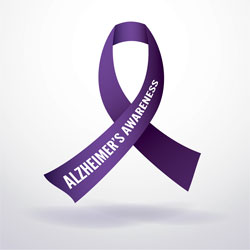 November is Alzheimer’s Disease Awareness Month. Among americans, Alzheimer’s disease is the sixth-leading cause of death. Today, one in three adults over the age of 65 will die from Alzheimer’s Disease or another form of dementia. Currently, more than 5 million Americans have the disease. Without significant medical breakthroughs, the disease could affect as many as 16 million people by 2050.
November is Alzheimer’s Disease Awareness Month. Among americans, Alzheimer’s disease is the sixth-leading cause of death. Today, one in three adults over the age of 65 will die from Alzheimer’s Disease or another form of dementia. Currently, more than 5 million Americans have the disease. Without significant medical breakthroughs, the disease could affect as many as 16 million people by 2050.
The Research
The US Food and Drug Administration have not approved any stem cell therapies for the treatment of Alzheimer’s Disease. Researchers are studying stem cells as a potential treatment avenue for brain diseases like Alzheimer’s Disease and Parkinson’s Disease, as well as stroke-induced brain injuries.
Last year, researchers at Stanford University injected stem cells into the brains of 18 patients who had previously suffered strokes, and whose natural recovery from the incident was though to have been complete. Researchers observed that about two-thirds of patients showed improvements in their motor skills. Some patients who had been wheelchair bound were able to walk again. In addition, improvements in the patients’ motor skills were observed a year after they received injections. That is significant because – like other cells – stem cells have a limited lifespan inside the body.
The Stanford researchers cautioned that while the experiment provides a great deal of hope for future treatments, their results do not represent a clear, scientifically acceptable measure of success. The Stanford experiment did not use a control group, largely because the researchers were not looking for improved function among the test subjects. Instead, the purpose of the experiment was to identify major complications that might arise from the injection of stem cells directly into the brain.
Save
Save
Save
Alzheimer’s Disease And Stem Cells
Researchers know that the damage caused by Alzheimer’s and Parkinson’s Diseases is more complex than stroke damage. Nonetheless, many scientists are currently engaged in animal stem cell research that may one day lead to human therapies for brain diseases. In addition to therapies that allow the brain to replace damaged cells, researchers are trying to determine whether stem cells could deliver certain neurosupportive proteins to key areas of a diseased brain. Stem cell research conducted entirely in the laboratory may also help scientists identify and test promising drug treatments for brain diseases.
Cord tissue banking may specifically play an important role in the study of dementias, and in the future, may help lead researchers to new therapies for a wide range of brain injuries.

While we feel it is important to highlight related stem cell research during Alzheimer’s Disease Awareness Month, it’s also a perfect time to take a look at some of the alarming statistics of Alzheimer’s disease.